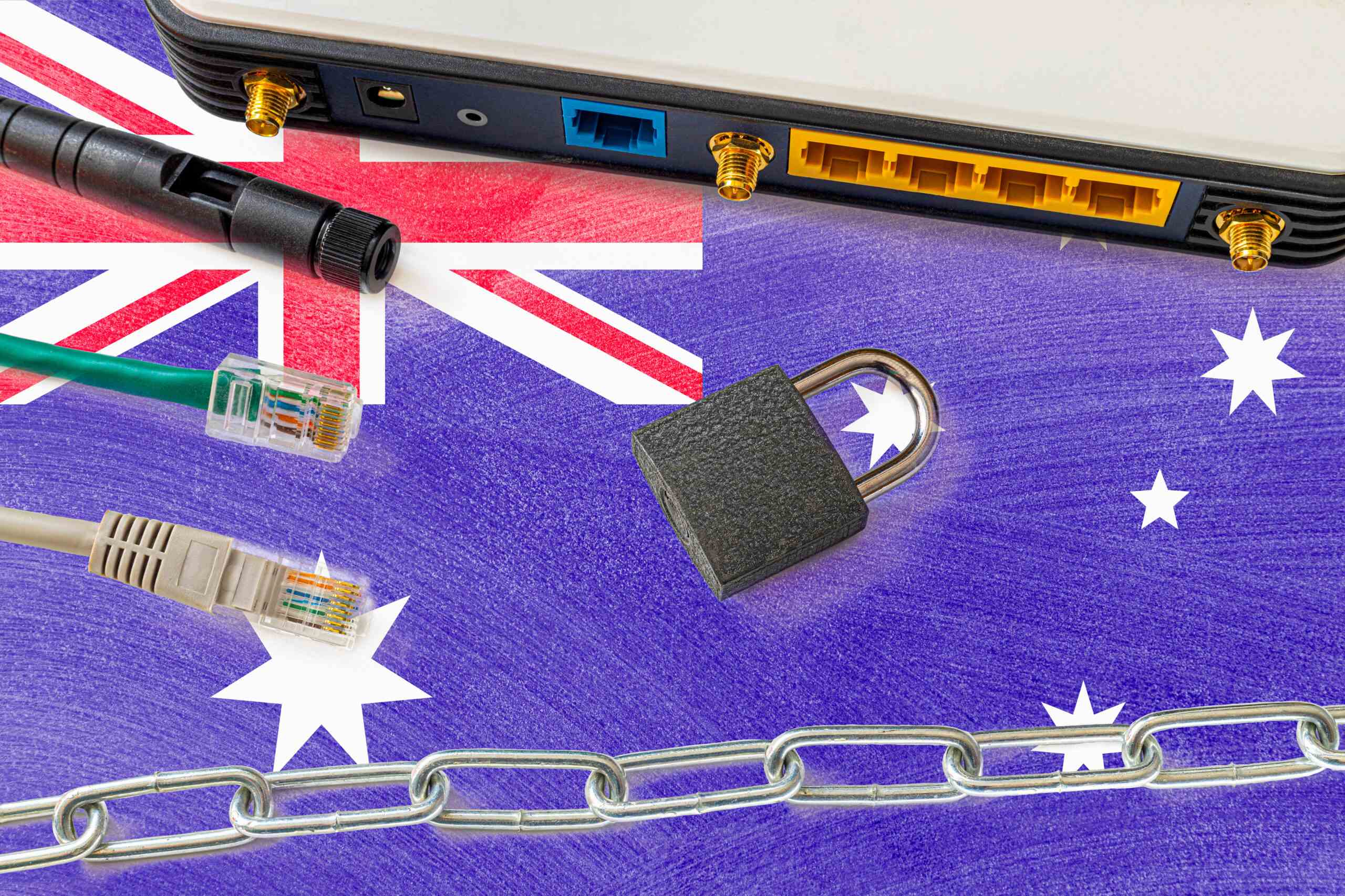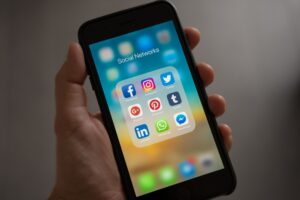The recent Australian elections may be over, but that doesn’t mean we are not left with many questions about the state of our democracy and how much digital privacy plays a role in changing or manipulating our viewpoints.
If you’re reading this, chances are that you’ve already heard of the Cambridge Analytica scandal that happened in the US. You know how they were able to target people with political ads and then use Facebook data to influence them.
The truth is this is only one tiny instance of digital manipulation based on data gathering techniques. There’s so much more going on in the world of digital privacy than just one company selling users’ data.
Let’s take a rather eye-opening walk through the current surveillance state that is being perpetuated by a global agenda and the Big Tech industry.
Federal Agencies Have Infiltrated News Media
Federal agencies have infiltrated news media, often at the expense of journalistic integrity compromising the digital privacy. While there’s nothing new about government officials trying to control the media or even fake news stories made for propaganda purposes, what is disturbing is how quickly this has become an accepted practice.
When the FBI decided it wanted to change people’s minds about their views on Islam and terrorism in 2015 (and beyond), it didn’t just put its own employees on air—it put others on air as well.
In 1977, it was the work of journalist Carl Benerstein that documented how the CIA and members of the press provided key insights on various assignments to manipulate the public’s opinion on a wide array of local, national, and international relations.
It doesn’t just stop with the news. FBI and CIA operatives are using film studios to push out narratives that are easier to digest. Go and check out the new documentary Theaters of War if you want more insight into that relationship.
When you go and read anything from Sky News, you have to wonder where Murdoch actually falls on the political playing field, or if the entire operation is nothing more than a money grab.
From MK Ultra to Big Tech & Flawed Digital Privacy
Public manipulation from Big Tech and government overreach shouldn’t be a surprise to anyone. In the ‘70s, it was MK Ultra to control the minds of citizens. Today, it is social media and data analytics which are the hotbed of digital privacy.
MK Ultra is the most famous of the CIA’s human experimentation programs, but it wasn’t exposed until 1975 by the Church Committee, and its revelations about MK Ultra were met with scepticism from many in the media and government.
To get a sense of how deep this corruption goes, we have to look at Big Tech as a whole. The world has changed dramatically since World War II when it comes to technology and communication systems. This change has come largely thanks to advances in computer science that have made our lives easier but also made them more vulnerable than ever before.
Every time we enter a new search term, buy a product, or “Ask Siri” for directions, that data is logged into servers all over the world and used to later sell us more – another open secret of how we are being fooled in the name of digital privacy. You cannot be so naïve to think that valuable data isn’t being used by other entities with far more hazardous intent.
Social Media & Bots Control the Narrative
Bots are a form of automated software that can be used to influence public opinion, elections, and more. Bots can be programmed to spread fake news stories, impersonate human accounts on social media platforms like Twitter or Facebook, and even impersonate humans in online customer support chat rooms.
Bots have become so widespread that they’re now being deployed by governments as weapons against other nations’ digital infrastructure, and invading their digital privacy.
In 2021, an Israeli company called NSO Group was found selling malware (a type of malicious software) to the Mexican government, which it used to target officials within the opposition party through their cell phones with text messages containing links to infected websites.
The fact that this technology exists means someone paid someone else to change how we think about elections and politics in general.
Such techniques have also been known to target journalists whose reporting threatens specific interests—through their computers or smartphones—with sophisticated viruses explicitly designed for surveillance purposes by intelligence agencies seeking information about their sources or other sensitive information stored therein.
According to a 2017 estimate, there were 23 million bots on Twitter (around 8.5% of all accounts), 140 million bots on Facebook (up to 5.5% of accounts), and around 27 million bots on Instagram (8.2% of the accounts). That’s 190 million bots on social media – more than half the number of people who live in the entire USA!
This isn’t another so-called right-wing conspiracy liberals love to scream about. This is every special interest group you can imagine across the entire spectrum of politics using technology to garner more votes.
Why do you think the entire sale of Twitter is under such scrutiny? When Elon Musk points out the massive number of bots on the platform Jack Dorsey built, others start to take notice. This is a power grab, and they know it.
It is the psychology of conformity. It is the elevator experiment of the 1950s that shows when everyone is facing the wrong way in the elevator, human beings feel pressure to do the same EVEN WHEN THEY KNOW THEY ARE WRONG!
Search Engines Give Answers They Think We Want
The problem is, social media and search engines are not neutral. They’re programmed to give us results that they think we want. And this can have serious consequences for the way people vote and make decisions in the world.
The most obvious example is the way Google favours popularity over accuracy when it comes to ranking its search results. This means that if a topic has been covered extensively on Wikipedia or in traditional news sources like The New York Times, then YouTube videos about that topic will rank lower in your search results than pages from Wikipedia or The New York Times (even though YouTube videos may be much more accurate).
Where does this leave us? Well, as long as we continue to rely on big tech companies like Google and Facebook for our access to information—and these companies remain unwilling or unable to offer real alternatives–we’re going through life blindfolded by our reliance on them.
For example – go to Google and search for “Konnech” and note how many pages you need to scroll through to see all the articles about the CCP’s covert involvement in the US elections.
Now try the same thing again using Freespoke or Brave as a browser and see how much is being hidden by Big Tech. Companies like Google do not want you to easily find this information because it goes directly against the globalization policy of current political leaders.
Democracy? Are We Being Microtargeted to Change Our Opinions & Votes?
You are being microtargeted. It is likely that you have been microtargeted by online advertisers at some point, with ads appearing based on the sites you visit. But advertising isn’t the only way we are being tracked and influenced and our digital privacy invaded. Search engines, social media platforms, and news media all collect information about our behaviour that can be used to change how we think about things or vote.
You have to remember gatekeeper power is what fuels Big Tech. Without data, there is no way to know what to do next. That means if you want to control a population, gather as much data on them first, and then deliver only the information that aligns with their wants and desire to build trust. Over time, you can start changing opinions because you are suddenly the reliable “Google” or “Facebook” these users have come to rely upon.
When you have such power, why would you give it up? There is no incentive for Big Tech companies to allow competition on their own platforms. Why would they want a competitor to Twitter to suddenly have the power of the people?
It makes more sense to gatekeep this technology so that the smaller voices out there are not given a loud enough megaphone to make a difference, and we are helping this situation get worse.
The more data collected by our cell phones, tablets, and online activity, the easier it is for Big Tech to invade our digital privacy as well as spy and shift our opinions. Need more proof, let’s revisit Cambridge Analytica once again.
Cambridge Analytica
Cambridge Analytica is a data analytics company that was hired to help target voters. They used Facebook data to influence voters on Facebook and other social media platforms. The company gathered personal information from 87 million Facebook users, which allowed them to target their political ads based on age, gender, and location.
Facebook is under fire for not protecting user’s digital privacy and allowing companies like Cambridge Analytica access to personal information in order to use it for profit. The company has been accused of influencing elections around the world, including Brexit and the 2016 presidential election in the United States.
Here’s the problem, this isn’t a Trump issue. If anything, Trump should be congratulated on his forward-thinking related to gathering data. Most businesses could learn a thing or two from such tactics.
The issue is that everyone is doing this! Obama did it in 2012 when he tracked voter opinions and raised over a billion USD from microtargeting users on social media. This isn’t some new tactic the left gets to throw at Trump when their own leadership is doing the same thing.
Australia is just as likely to use these tactics in today’s election cycles as anyone else.
Do we really have a democracy? So what should we do? All start using VPNs?
Some VPNs Compromise Digital Privacy
When you use a VPN, it’s important to make sure that your information is safe. The VPN company may not be trustworthy and could sell your data to the highest bidder. A VPN is a virtual private network designed to make you more anonymous online. However, not all VPNs are created equal.
One way some VPNs are compromised is through backdoors in their code. A backdoor allows someone other than the owner of the program (i.e., you) to access the server responsible for maintaining digital privacy where all of your data is stored and see what’s inside it—potentially including things like usernames and passwords for sites like Facebook or Gmail, or even credit card numbers.
Another way some services have been compromised by third parties (including governments) is through servers that have been set up without permission from anyone who owns them. These servers then harvest data from users who log into them under false pretences without knowing anything about what they’re really doing there because they only wanted better internet connection speeds abroad instead.
A good example is ExpressVPN. This was supposed to be a secure method of anonymizing your time online that turned out to be a method of tracking vital information of users. The US DOJ just fined the previous owners of ExpressVPN $1.6 million for hacking-related charges. They were using ExpressVPN as part of Project Raven, where mercenary hackers hired by the United Arab Emirates could spy on their enemies.
You have to view VPNs kind of like major food brands in the supermarket. There might look like 15 brands of peanut butter, but in reality, it is Kraft Foods behind them all.
The same is true for VPNs. At least 105 VPN services are owned and operated by only 24 unique companies. These owners can tell that when they control access to data, they build a business model that people want to purchase at the expense of digital privacy of people.
Why is this happening? If you control the data, who has access to it, and what information is available to the common user, then you control the narrative of a people. This means all it takes to sway public opinion is a little research and automation.
Governments are Punishing Those Speaking Out
Governments have punished those who speak out against them, as well as those who don’t. All of us have most likely heard of the people being arrested in Australia due to outspoken free speech.
It was only a couple of years ago Zoe-Lee Buhler was arrested in her Victoria home after posting to social media against the Covid lockdowns. This was a 28-year-old married woman who was pregnant at the time, being handcuffed in front of her husband and other children due to her online comments.
Don’t even get started on China! This is a country where such tight regulatory control is placed on social media and search engines that even neighbours are encouraged to rat out one another. There is a “social credit” system in place that punishes those the ruling party deems outspoken or threats to society.
The Only Way to Fight Back is Digital Anonymity
There are many ways to protect your digital privacy. Using a VPN is the first step, but you can also use Tor browser, set up a VPN on your mobile device, or set up a VPN on all of your devices. You could even get in on the ground floor and invest in building out an anonymous network yourself
The best way to keep your online activity hidden is by using a decentralized network where there are no servers or points of failure—and that means fighting back against censorship by building a more decentralized infrastructure for those who want it.
While that may still be a few years in the making, the simpler conclusion is to prevent companies from spying on you while you’re online. There is no 100% effective method, but you can certainly use preventative steps that get you 99.9% of the way there.
Start with a deGoogled phone from Freedom Technology and Services. We take refurbished, new, and older phones and strip away the tracking services of Google. Then we use evidenced-backed open source operating systems and apps, so you get all the reliable technology you want without sacrificing your data to Big Tech or government agencies.
Next, invest in a Faraday Bag. This specialized mesh material blocks Bluetooth, WiFi, Cellular, and other network signals from penetrating your devices. You can place your phone, laptop, or tablet into a Faraday Bag and stop worrying about anyone stealing your data or private passwords for use later on.
Conclusion
The fight for digital privacy is a long one. It will take years of hard work, but it’s worth it to protect our rights as citizens. The only way we can do this is by taking back control of our own data and keeping our information private from big tech companies and governments who want to use it for their own gain.
Democracy is a good idea, but not if there is no way to have a contradicting opinion than what the government or Big Tech wants. We have to have the tools to overcome data manipulation at the current level, creating more and more of a surveillance state.









